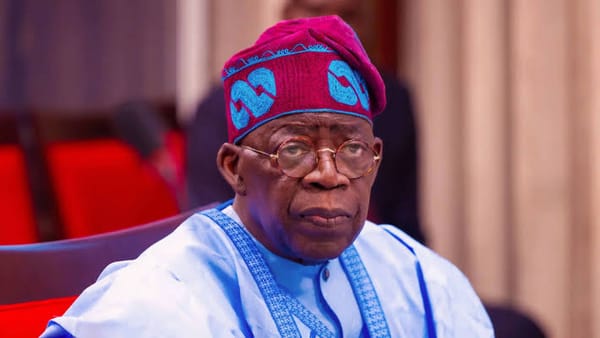President Donald Trump said that he won’t back down on his sweeping tariffs on imports from most of the world unless countries even out their trade with the U.S., digging in on his plans to implement the taxes that have sent financial markets reeling, raised fears of a recession and upended the global trading system.
Speaking to reporters aboard Air Force One, Trump said he didn’t want global markets to fall, but also that he wasn’t concerned about the massive sell-off either, adding, “sometimes you have to take medicine to fix something.”
His comments came as global financial markets appeared on track to continue sharp declines once trading resumes Monday, and after Trump’s aides sought to soothe market concerns by saying more than 50 nations had reached out about launching negotiations to lift the tariffs.
“I spoke to a lot of leaders, European, Asian, from all over the world,” Trump said. “They’re dying to make a deal. And I said, we’re not going to have deficits with your country. We’re not going to do that, because to me a deficit is a loss. We’re going to have surpluses or at worst, going to be breaking even.”
The higher rates are set to be collected, ushering in a new era of economic uncertainty with no clear end in sight. Treasury Secretary Scott Bessent said unfair trade practices are not “the kind of thing you can negotiate away in days or weeks.” The United States, he said, must see “what the countries offer and whether it’s believable.”
Trump, who spent the weekend in Florida playing golf, posted online that “WE WILL WIN. HANG TOUGH, it won’t be easy.” His Cabinet members and economic advisers were out in force defending the tariffs and downplaying the consequences for the global economy.
“There doesn’t have to be a recession. Who knows how the market is going to react in a day, in a week?” Bessent said. “What we are looking at is building the long-term economic fundamentals for prosperity.”
U.S. stock futures dropped on Sunday night as the tariffs continued to roil the markets. S&P 500 futures were down 2.5% while that for the Dow Jones Industrial Average shed 2.1%. Nasdaq futures were down 3.1%. Even the price of bitcoin, which held relatively stable last week, fell nearly 6% Sunday.
Asian shares, meanwhile, nosedived. Tokyo’s Nikkei 225 index lost nearly 8% shortly after the market opened. By midday, it was down 6%. A circuit breaker briefly suspended trading of Topix futures after an earlier sharp fall in U.S. futures. Chinese markets also tumbled, with Hong Kong’s Hang Seng dropping 9.4%, while the Shanghai Composite index lost 6.2%.
Trump’s tariff blitz, announced April 2, fulfilled a key campaign promise as he acted without Congress to redraw the rules of global trade. It was a move decades in the making for Trump, who has long denounced foreign trade deals as unfair to the U.S. He is gambling that voters will be willing to endure higher prices for everyday items to enact his economic vision.
Countries are scrambling to figure out how to respond to the tariffs, with China and others retaliating quickly.
Top White House economic adviser Kevin Hassett acknowledged that other countries are “angry and retaliating,” and, he said, “by the way, coming to the table.” He cited the Office of the U.S. Trade Representative as reporting that more than 50 nations had reached out to the White House to begin talks.
Adding to the turmoil, the new tariffs are hitting American allies and adversaries alike, including Israel, which is facing a 17% tariff. Israeli Prime Minister Benjamin Netanyahu is set to visit the White House and speak at a press conference with Trump on Monday, with his office saying the tariffs would be a point of discussion with Trump along with the war in Gaza and other issues.
Another American ally, Vietnam, a major manufacturing center for clothing, has also been in touch with the administration about the tariffs. Trump said Vietnam’s leader said in a telephone call that his country “wants to cut their Tariffs down to ZERO if they are able to make an agreement with the U.S.” And a key European partner, Italian Premier Giorgia Meloni, said she disagreed with Trump’s move but was “ready to deploy all the tools — negotiating and economic — necessary to support our businesses and our sectors that may be penalized.”
Commerce Secretary Howard Lutnick made clear there was no postponing tariffs that are days away.
Several Republican senators have already signed onto a new bipartisan bill that would require presidents to justify new tariffs to Congress. Lawmakers would then have to approve the tariffs within 60 days, or they would expire. Nebraska GOP Rep. Don Bacon said Sunday that he would introduce a House version of the bill, saying that Congress needs to restores its powers over tariffs.







